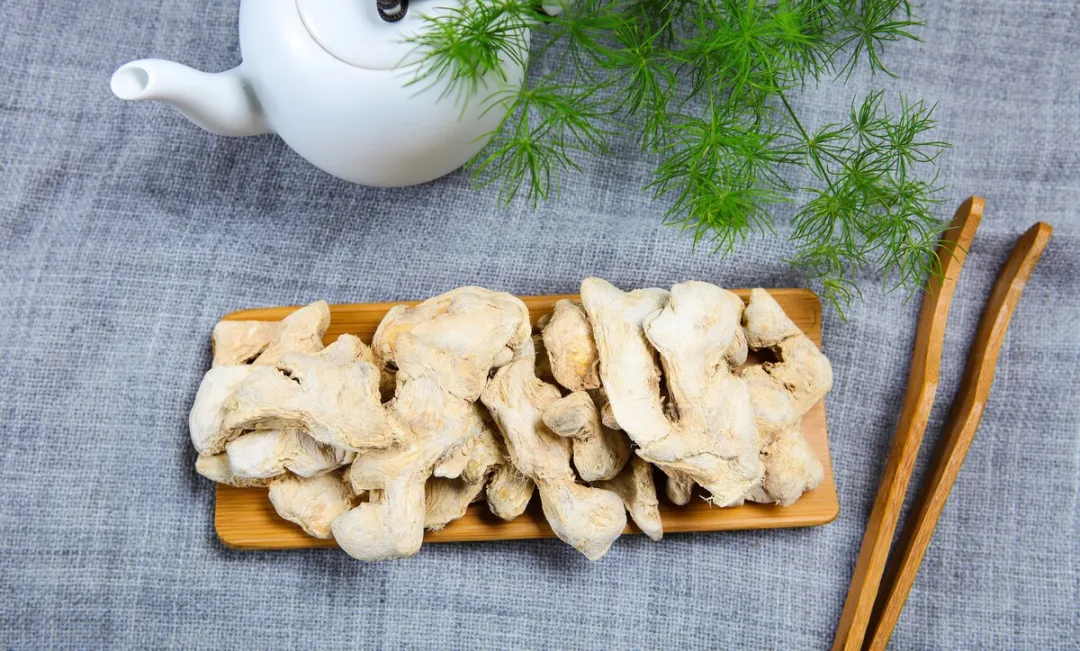Do You Know About Spleen and Stomach Yang Deficiency?
Spleen and stomach yang deficiency, also known as pi wei yang xu (脾胃阳虚) or zhong jiao xu han (中焦虚寒), refers to insufficient yang energy in the spleen and stomach. This deficiency weakens the warming ability of yang energy, leading to various cold and deficiency symptoms, such as sensitivity to cold, cold extremities, edema, easy diarrhea, abdominal pain and bloating, stomach cold pain, preference for warmth and pressure, nausea and vomiting, poor appetite, and loose stools that are thin and clear. The tongue may appear pale and swollen or have tooth marks, and the pulse is deep, slow, and weak.

Why Do You Have Spleen and Stomach Yang Deficiency?
Spleen and stomach yang deficiency is commonly seen in individuals with irregular diets, primarily related to dietary habits and congenital constitution. It may also develop from an initial weakness of spleen qi that was not properly addressed, leading to further development into spleen and stomach yang deficiency. If you frequently consume cold and raw foods, it can damage the yang energy of the spleen and stomach, resulting in weakened warming functions and the emergence of deficiency-cold symptoms. Additionally, a naturally weak constitution or malnutrition during growth can lead to a congenital deficiency of spleen and stomach yang energy.
What Are the Dangers of Spleen and Stomach Yang Deficiency?
Patients are prone to diarrhea, which can be triggered by consuming slightly cold or greasy foods, and may even lead to persistent diarrhea. Furthermore, their immunity decreases, making them susceptible to various gastrointestinal diseases, such as gastritis and gastric ulcers. Symptoms vary from person to person, and patients should seek medical attention promptly for professional diagnosis and treatment.
How to Use Medicine to Improve Spleen and Stomach Yang Deficiency?
For spleen and stomach yang deficiency, the basic principle of treatment is to warm and tonify the spleen and stomach. On one hand, for symptoms such as poor appetite, pale complexion, thin body, fatigue, and loose stools caused by food stagnation, the treatment should focus on strengthening the stomach and aiding digestion, primarily using herbs that tonify spleen qi, such as Ren Shen (人参, Ginseng), Dang Shen (党参, Codonopsis), Bai Zhu (白术, Atractylodes), and Shan Yao (山药, Chinese Yam), along with digestive herbs like Shen Qu (神曲, Massa Fermentata), Shan Zha (山楂, Hawthorn), and Mai Ya (麦芽, Barley Sprout). On the other hand, for symptoms such as abdominal distension and cold pain, nausea and vomiting, cold extremities, abdominal pain, and lack of thirst, the treatment should focus on warming the middle and dispelling cold, often using combinations of herbs that tonify spleen qi and warm the middle.

7 Commonly Used Chinese Patent Medicines for Improving Spleen and Stomach Yang Deficiency
Wen Wei Shu Granules (温胃舒颗粒) — Warms the stomach and alleviates pain.
Main ingredients include Fu Zi (附子, Aconite), Dang Shen (党参, Codonopsis), Huang Qi (黄芪, Astragalus), Bai Zhu (白术, Atractylodes), Chen Pi (陈皮, Dried Tangerine Peel), Rou Gui (肉桂, Cinnamon), Shan Yao (山药, Chinese Yam), Sha Ren (砂仁, Amomum), Rou Cong Rong (肉苁蓉, Cistanche), Shan Zha (山楂, Hawthorn), Wu Mei (乌梅, Mume), and Bu Guo Zhi (补骨脂, Psoralea).
Indications: Can be used for chronic gastritis, cold food intake, and severe cold pain in the stomach.
Clinical experience: Clinical studies have concluded that Wen Wei Shu Granules are significantly effective in treating functional vomiting due to spleen and stomach yang deficiency.
Dosage: Dissolve in hot water, 1-2 bags per dose, twice a day.
Warm Wei Shu Le Granules (暖胃舒乐颗粒) — Warms the middle, tonifies deficiency, promotes qi and invigorates blood, harmonizes liver and spleen, alleviates pain and promotes tissue regeneration.
Main ingredients include Huang Qi (黄芪, Astragalus), Dan Shen (丹参, Salvia), Yan Hu Suo (延胡索, Corydalis), Bai Shao (白芍, White Peony), Rou Gui (肉桂, Cinnamon), Sha Ren (砂仁, Amomum), Ji Shi Teng (鸡矢藤, Rubus), Bai Ji (白及, Bletilla), Pao Jiang (炮姜, Dried Ginger), and Wu Bei Zi (五倍子, Galla Chinensis).
Indications: Used for spleen and stomach yang deficiency and liver-spleen disharmony type gastric ulcers, chronic gastritis, duodenal ulcers, with symptoms of abdominal pain, acid reflux, belching, and preference for warmth.
Dosage: Dissolve in hot water, 4g per dose, three times a day, or as directed by a physician.
Compound Chun Sha Granules (复方春砂颗粒) — Promotes qi, warms the middle, alleviates pain and bloating, strengthens the spleen and opens the stomach.
Main ingredients include Sha Ren (砂仁, Amomum) leaf oil, Bai Zhu (白术, Atractylodes), Hua Ju Hong (化橘红, Dried Citrus Peel), and Zhi Qiao (枳壳, Bitter Orange).
Indications: Used for stomach pain and indigestion caused by spleen and stomach yang deficiency.
Dosage: Dissolve in hot water, 10g per dose, three times a day, or as directed by a physician.

Fu Zi Li Zhong Wan (附子理中丸) — Warms the middle and strengthens the spleen.
Main ingredients include Fu Zi (附子, Aconite), Gan Jiang (干姜, Dried Ginger), Bai Zhu (白术, Atractylodes), Dang Shen (党参, Codonopsis), and Gan Cao (甘草, Licorice).
Indications: Used for spleen and stomach yang deficiency, vomiting, diarrhea, cold abdominal pain, and cold extremities.
Clinical experience: Randomized controlled studies have concluded that Fu Zi Li Zhong Wan combined with moxibustion at the Shen Que (神阙, Ren 8) point can treat severe diarrhea in patients with spleen and kidney yang deficiency.
Dosage: Oral administration. For water honey pills, 6g per dose; for small honey pills, 9g per dose; for large honey pills, 1 pill per dose, 2-3 times a day, or as directed by a physician.

Ding Kou Li Zhong Wan (丁蔻理中丸) — Warms the middle, dispels cold, tonifies the spleen, and strengthens the stomach.
Main ingredients include Ding Xiang (丁香, Clove), Dou Kou (豆蔻, Cardamom), Bai Zhu (白术, Atractylodes), Gan Jiang (干姜, Dried Ginger), Dang Shen (党参, Codonopsis), and Zhi Gan Cao (炙甘草, Honey-fried Licorice).
Indications: Can be used for spleen and stomach yang deficiency, vomiting, diarrhea, indigestion, and abdominal cramping pain.
Dosage: Oral administration. 1 pill per dose, twice a day; or 6g per dose, twice a day.
Xiao Jian Zhong Capsules (小建中胶囊) — Warms the middle, dispels cold, and alleviates acute pain.
Main ingredients include Gui Zhi (桂枝, Cinnamon Twig), Sheng Jiang (生姜, Fresh Ginger), Bai Shao (白芍, White Peony), Da Zao (大枣, Jujube), Zhi Gan Cao (炙甘草, Honey-fried Licorice), and Yi Tang (饴糖, Maltose).
Indications: Used for spleen and stomach yang deficiency, preference for warmth and pressure, abdominal pain, reduced appetite, and acid reflux.
Dosage: Oral administration. 2-3 capsules per dose, three times a day, or as directed by a physician.
Shen Gui Li Zhong Wan (参桂理中丸) — Warms the middle, dispels cold, eliminates dampness, and alleviates pain.
Main ingredients include Ren Shen (人参, Ginseng), Fu Zi (附子, Aconite), Rou Gui (肉桂, Cinnamon), Bai Zhu (白术, Atractylodes), Gan Jiang (干姜, Dried Ginger), and Gan Cao (甘草, Licorice).
Indications: Used for abdominal pain and diarrhea due to spleen and stomach yang deficiency, cold stomach vomiting, cold damp hernia, cold extremities, and menstrual pain due to cold blood in women.
Dosage: Taken with ginger soup or warm water; 1-2 pills per dose, 1-2 times a day, or as directed by a physician.

What to Pay Attention to in Daily Life for Regulating Spleen and Stomach Yang Deficiency?
Here are three suggestions for patients:
Regular Diet — Maintain regular meal times, ensure adequate rest, pay attention to healthy eating, and avoid binge eating or dieting, as well as irregular eating patterns. Food intake should be moderate, focusing on easily digestible and absorbable foods.
Keep Warm — Especially keep the abdomen warm, avoid consuming raw and cold foods, cold drinks, and frozen foods; ensure adequate dietary fiber intake, and encourage the use of medicinal foods that tonify the spleen and stomach, such as Fu Ling (茯苓, Poria) and Shan Yao (山药, Chinese Yam) congee.
Enhance Constitution — Pay attention to nutrition, engage in regular exercise, maintain a positive and optimistic mood, and avoid excessive emotional fluctuations.
Remember Follow Us!
Follow Us!
Editor Shares Good Articles with Friends
1.Is a Toothmark on the Tongue a Sign of Spleen Deficiency? No Wonder You Keep Getting Sick; There Are Actually 3 Other Reasons
2. A Comprehensive List of 8 Chinese Patent Medicines for Stomach Bloating, Pain, Cold, Gastritis, and Dampness
3. 6 Key Points to Know When Taking Prednisone (Dexamethasone) for Safe Use
4. Raising Yang is the Best Method to Tonify the Spleen; Here’s a Tip to Raise Yang, Eliminate Dampness, and Dispel Cold, Strengthening the Postnatal Foundation
Like is a form of encouragement Share to spread joy

